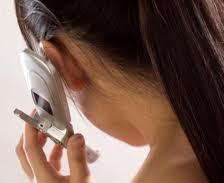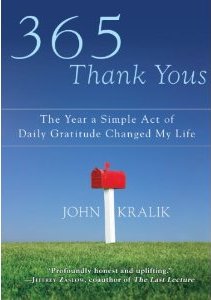February 26th, 2011 by PJSkerrett in Opinion, Research
No Comments »

 We all know that using a cell phone can stimulate the brain to work a bit harder. “Mr. Skerrett? This is Dr. LeWine’s office. Do you have a minute to talk about your test results?” or “Dad, a bunch of kids are going to Casey’s house after the dance. Can I go?” But a new study published in JAMA is making me wonder what the energy emitted by the phone itself — not just the information it delivers — is doing to my brain.
We all know that using a cell phone can stimulate the brain to work a bit harder. “Mr. Skerrett? This is Dr. LeWine’s office. Do you have a minute to talk about your test results?” or “Dad, a bunch of kids are going to Casey’s house after the dance. Can I go?” But a new study published in JAMA is making me wonder what the energy emitted by the phone itself — not just the information it delivers — is doing to my brain.
Here’s the study in a nutshell. Dr. Nora Volkow and her colleagues recruited 47 volunteers to have their brain activity measured twice by a PET scanner. Both times the volunteer had a cell phone strapped to each ear. During one measurement, both phones were turned off. During the other, one phone was turned on but muted so the volunteer didn’t know it was on; the other was left off. Each session lasted about an hour. The scans showed a small increase in the brain’s use of glucose (blood sugar) when the phone was on, but only in parts of the brain close to the antenna.
It was an elegant study. The researchers took pains to anticipate sources of error. They used a control (both phones off) against which to compare the effect of a “live” cell phone. They used cell phones on each ear, one on and one off, to see if the effect was localized. They muted the phone that was on to eliminate the possibility that any brain activation was due to listening to the sound of a voice coming through the phone’s speaker. So the result is probably a real one, not an artifact or measurement error.
What does this brain activation mean? No one really knows. As Dr. Volkow told NPR, “I cannot say if it is bad that they [cell phones] are increasing glucose metabolism, or if it could be good.” Read more »
*This blog post was originally published at Harvard Health Blog*
February 25th, 2011 by admin in Book Reviews, True Stories
No Comments »


This is a guest post by Dr. John Schumann.
**********
I just read the book “365 Thank Yous” by John Kralik. I heard an interview with the author on NPR and it caught my attention.
Kralik had been down on his luck in 2007: Divorced twice, overweight, with a struggling law firm that he’d started, he was also failing in a new romantic relationship. He was worried about losing his seven-year-old daughter, too, in a custody dispute.
He made a momentous decision: Instead of feeling sorry for himself (easy to do given his predicaments), he decided to be grateful for what he had. To show it, he vowed to write a thank-you note every day for the next year. What do you think happened?
His life changed for the better. His relationship improved. His clients started paying their bills and his firm’s financial footing solidified. His health improved. He eventually achieved his lifelong dream of becoming a judge. To top it off, he turned his personal quest into a writing project. Within minutes of writing a book proposal, he received responses from agents who hoped to shepherd his project. Every writer’s dream.
I’ll grant you that it sounds hokey. But there are a couple of things the book demonstrated to me. Read more »
*This blog post was originally published at ACP Internist*
February 23rd, 2011 by Davis Liu, M.D. in Health Policy, Opinion
2 Comments »

With the creation of consumer-driven health plans and health insurance policies with high deductibles linked to a savings option, more financial responsibility shouldered by patients and employees and less by employers was completely inevitable. The American public likes to have everything, whether consumer electronics or other services, as cheap as possible. With escalating healthcare expenses rising far more rapidly than wages or inflation, it’s not surprising employers needed a way to manage this increasingly-costly business expense.
In the past, companies faced a similar dilemma. It wasn’t about medical costs, but managing increasingly expensive retirement and pension plan obligations. Years ago, companies moved from these defined benefit plans to defined contribution plans like 401(k)s. After all, much like healthcare, the reasoning by many was that employees were best able to manage retirement planning because they would have far more financial incentive, responsibility, and self-motivation to make the right choices to ensure a successful outcome.
How did that assumption turn out anyway? Disastrous, according to a recent Wall Street Journal article entitled “Retiring Boomers Find 401(k) Plans Fall Short.” An excerpt:
The median household headed by a person aged 60 to 62 with a 401(k) account has less than one-quarter of what is needed in that account to maintain its standard of living in retirement, according to data compiled by the Federal Reserve and analyzed by the Center for Retirement Research at Boston College for The Wall Street Journal. Even counting Social Security and any pensions or other savings, most 401(k) participants appear to have insufficient savings. Data from other sources also show big gaps between savings and what people need, and the financial crisis has made things worse.
In others words, a lot of people don’t have enough money to retire. The options they have are simply “postponing retirement, moving to cheaper housing, buying less-expensive food, cutting back on travel, taking bigger risks with their investments, and making other sacrifices they never imagined…In general, people facing problems today got too little advice, or bad advice.” Read more »
*This blog post was originally published at Saving Money and Surviving the Healthcare Crisis*
February 21st, 2011 by Toni Brayer, M.D. in Health Tips, Opinion
No Comments »

 “But doc, my blood pressure is always normal at home.” I wish I had a dollar for every time I have heard that line and I know it is true. When some patients come to see me, their blood pressure is abnormally high (above 130/90). This is known as “white-coat hypertension.” Although it has been thought to be from anxiety about seeing the doctor, even long-established patients who have no conscious anxiety can exhibit elevated blood pressure in the office.
“But doc, my blood pressure is always normal at home.” I wish I had a dollar for every time I have heard that line and I know it is true. When some patients come to see me, their blood pressure is abnormally high (above 130/90). This is known as “white-coat hypertension.” Although it has been thought to be from anxiety about seeing the doctor, even long-established patients who have no conscious anxiety can exhibit elevated blood pressure in the office.
Because blood pressure naturally fluctuates and the office visit is not a “normal” setting, it is important for patients who have high blood pressure (hypertension) to have their own blood pressure cuff at home. Now that devices are automated and easy to use, everyone with hypertension should be monitoring their blood pressure in the comfort of their own home. I advise multiple readings over a week at different times of day. Get a reading when resting and when rushing around. Take your blood pressure after you exercise and after a meal. It is important to keep a log and write it down. Only then can we see patterns and know if the blood pressure is controlled or not.
Blood pressure readings in the doctors office are not necessarily the most accurate. Patients are often rushed trying to get parked and in on time. Medical assistants can use the wrong size cuff or not position the arm correctly. Listening (auscultation) is not very accurate due to human error. It is the multiple readings over time that give a more accurate picture of blood pressure control.
High blood pressure in the office can be true hypertension or it can be white-coat hypertension that is usually controlled at home. If a patient is on blood pressure medication and has controlled blood pressure at home, I will not add more medication just because they are elevated in the office. If a patient has not been diagnosed with hypertension and his or her blood pressure is elevated in the office, he or she is advised to get their own blood pressure cuff for at home and return with readings for us to review. This way we can minimize unnecessary and expensive medication and make sure we are protecting the patient as well.
*This blog post was originally published at EverythingHealth*
February 18th, 2011 by Lucy Hornstein, M.D. in True Stories
2 Comments »

 Never in a million years would I have dreamed I would be able to say this, but I actually recommended a homeopathic remedy today. To briefly review, for anyone who may be under the mistaken impression that homeopathic remedies actually do anything — they don’t. Here’s why in a nutshell:
Never in a million years would I have dreamed I would be able to say this, but I actually recommended a homeopathic remedy today. To briefly review, for anyone who may be under the mistaken impression that homeopathic remedies actually do anything — they don’t. Here’s why in a nutshell:
Homeopathy is an unscientific and absurd pseudoscience, which persists today as an accepted form of complementary medicine, despite there never having been any reliable scientific evidence that it works.
So what on earth possessed me to seriously recommend it? I’ll tell you.
I saw a beautiful little four-month-old today whose mother thinks he might be teething. Everyone thinks their four-month-olds are teething because they start getting more drooly as their hand-mouth coordination improves, allowing them to get more things into their mouths. Most of the time they don’t actually get their teeth until about six months, though four month olds pop out teeth often enough to keep us on their toes. I told her this. She’s cool. Here’s her problem:
“The daycare is getting fussy. They want me to bring in the Oragel. I don’t really think he needs it, and I don’t like the idea of giving medicine when it’s not really necessary.”
Daycares can be fussier than babies sometimes. That’s when I realized that a homeopathic teething remedy is the perfect solution:
- The baby is happy because someone’s rubbing his gums.
- Mom is happy because the baby’s not getting any medicine.
- Daycare is happy because they’re “doing something.”
Win-win-win.
*This blog post was originally published at Musings of a Dinosaur*
 We all know that using a cell phone can stimulate the brain to work a bit harder. “Mr. Skerrett? This is Dr. LeWine’s office. Do you have a minute to talk about your test results?” or “Dad, a bunch of kids are going to Casey’s house after the dance. Can I go?” But a new study published in JAMA is making me wonder what the energy emitted by the phone itself — not just the information it delivers — is doing to my brain.
We all know that using a cell phone can stimulate the brain to work a bit harder. “Mr. Skerrett? This is Dr. LeWine’s office. Do you have a minute to talk about your test results?” or “Dad, a bunch of kids are going to Casey’s house after the dance. Can I go?” But a new study published in JAMA is making me wonder what the energy emitted by the phone itself — not just the information it delivers — is doing to my brain.
















